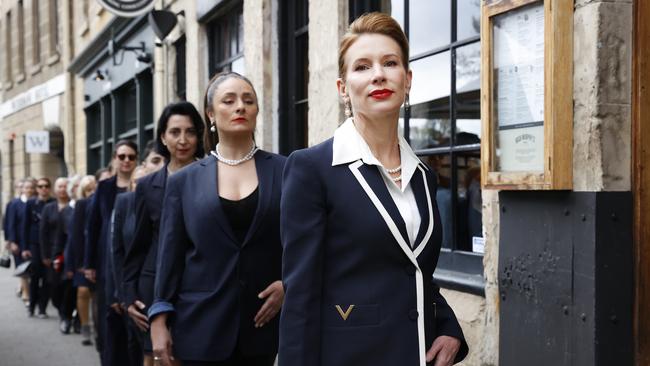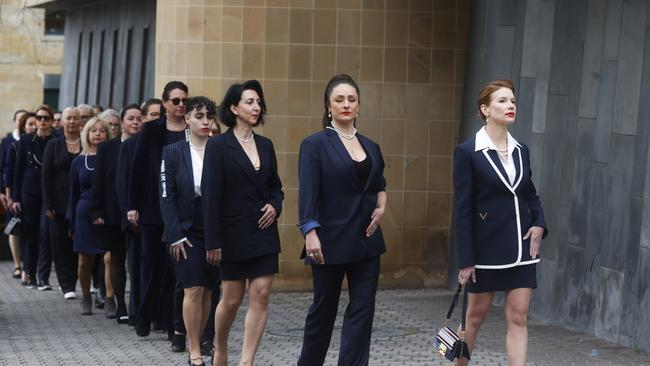Mona launches appeal on Ladies’ Lounge decision
The decision forcing Mona to close its exclusive lounge for ladies has been challenged. Here’s what Mona’s lawyers have said about the case.
Tasmania
Don't miss out on the headlines from Tasmania. Followed categories will be added to My News.
The legal fight to keep Mona’s Ladies’ Lounge open to females only has reached the Supreme Court of Tasmania, after the Berriedale museum appealed a recent Tasmanian Civil and Administrative Tribunal ruling that the installation admit men.
The TASCAT case was brought by NSW man, Jason Lau, who complained he had suffered discrimination when refused entry to the Ladies Lounge in April 2023.
Mona artist and Ladies Lounge curator, Kirsha Kaechele, appealed the decision in the Supreme Court, which heard arguments as to whether the Ladies Lounge was exempt from Tasmania’s Anti-Discrimination Act under its equal opportunity provisions.

Counsel for Moorilla Estate, Catherine Scott, told Acting Justice Shane Marshall that the Ladies Lounge policy to admit only women was not about access to a physical art space, but in creating equal opportunity through the experiences the art provided.
“It is designed to promote the experience of discrimination on the basis of gender,” counsel argued.
Ms Scott argued that after Mr Lau was denied entry to the Ladies Lounge, he had not considered the fact that many women were still treated unequally in society, felt less safe at work and home, did more unpaid work, and were less valued and powerful, than men.

“This bias cannot be based on what they are capable of,“ Ms Scott said.
“There’s nothing wrong with women.”
Ms Scott said that Ms Kaechele had given evidence to TASCAT that although the Ladies Lounge was designed to mimic a way which had traditionally kept women out, its main purpose was to promote the ongoing imbalances in all spaces in society.
Ms Scott said the tribunal had incorrectly considered the Ladies Lounge as “just a space”, as opposed to an experience, and that its findings demonstrated that misapprehension.

“It’s the whole participatory experience - women you can come in, men you can’t, now go away and think about why,” Ms Scott said.
Ms Scott asked Acting Justice Marshall to dismiss the TASCAT decision.
But barrister Greg Barns, representing Mr Lau, told the court that Tribunal Deputy President Richard Gruber’s decision had been “impeccable”, in that the Anti-Discrimination Act’s equal opportunity provisions did not allow an unrestricted scope.

Mr Barns said while there was no dispute that discrimination against women still existed in contemporary society, the reasoning of the tribunal was that the Ladies Lounge reflected only on historic gender disadvantages.
“This was about making a statement about historic imbalance,” Mr Barns said about the evidence given in the TASCAT hearing.
“This is an artwork which reflects on historic discrimination, but it does not come within Section 26.”
Justice Marshall reserved his decision, saying he would publish his finding as soon as reasonably practicable.





